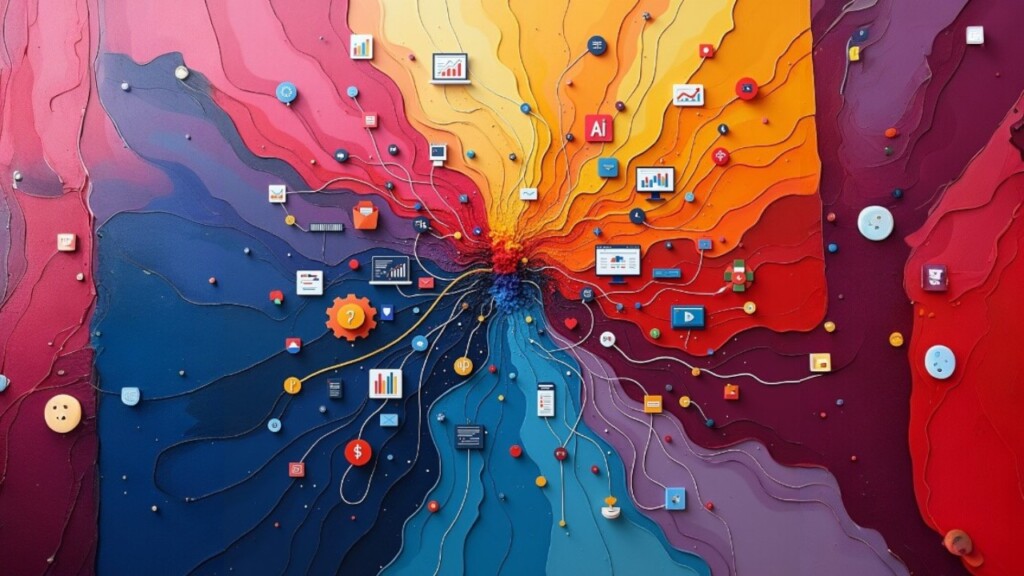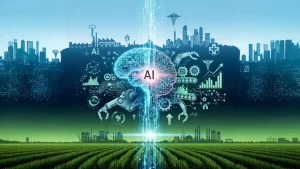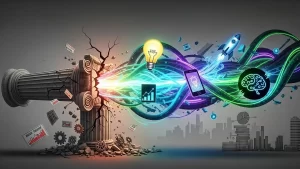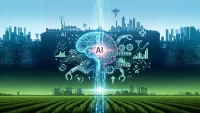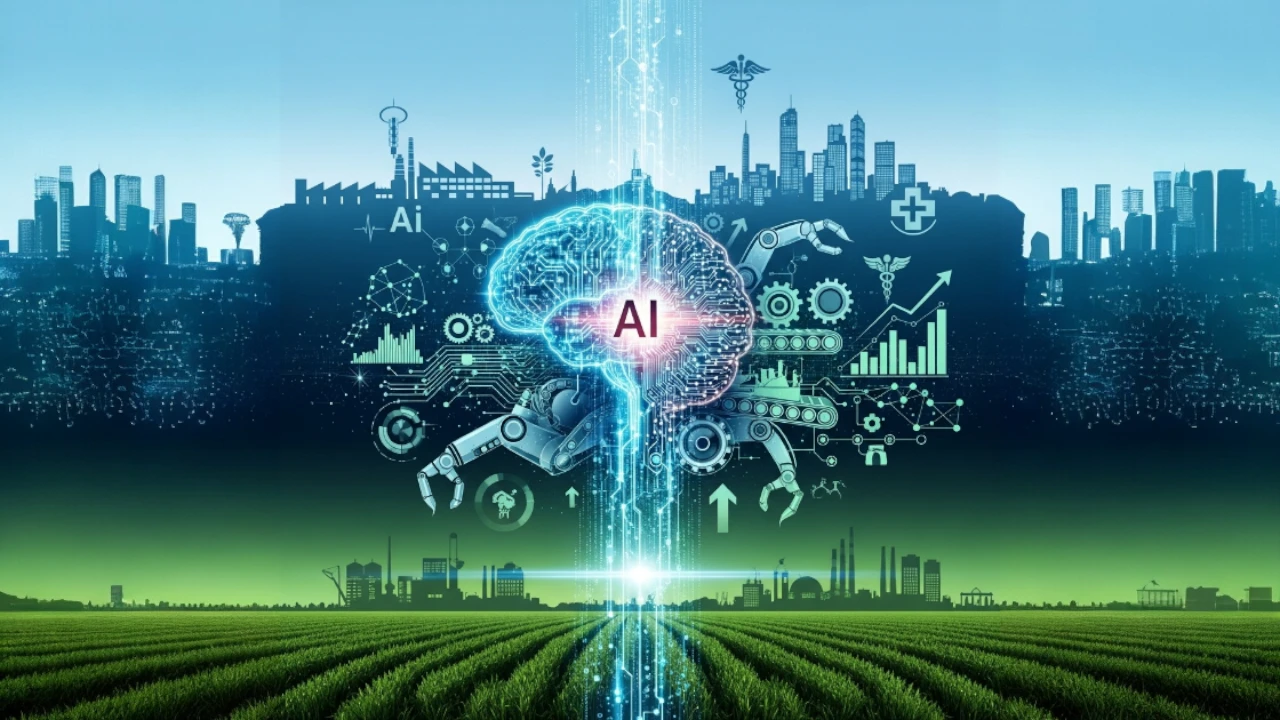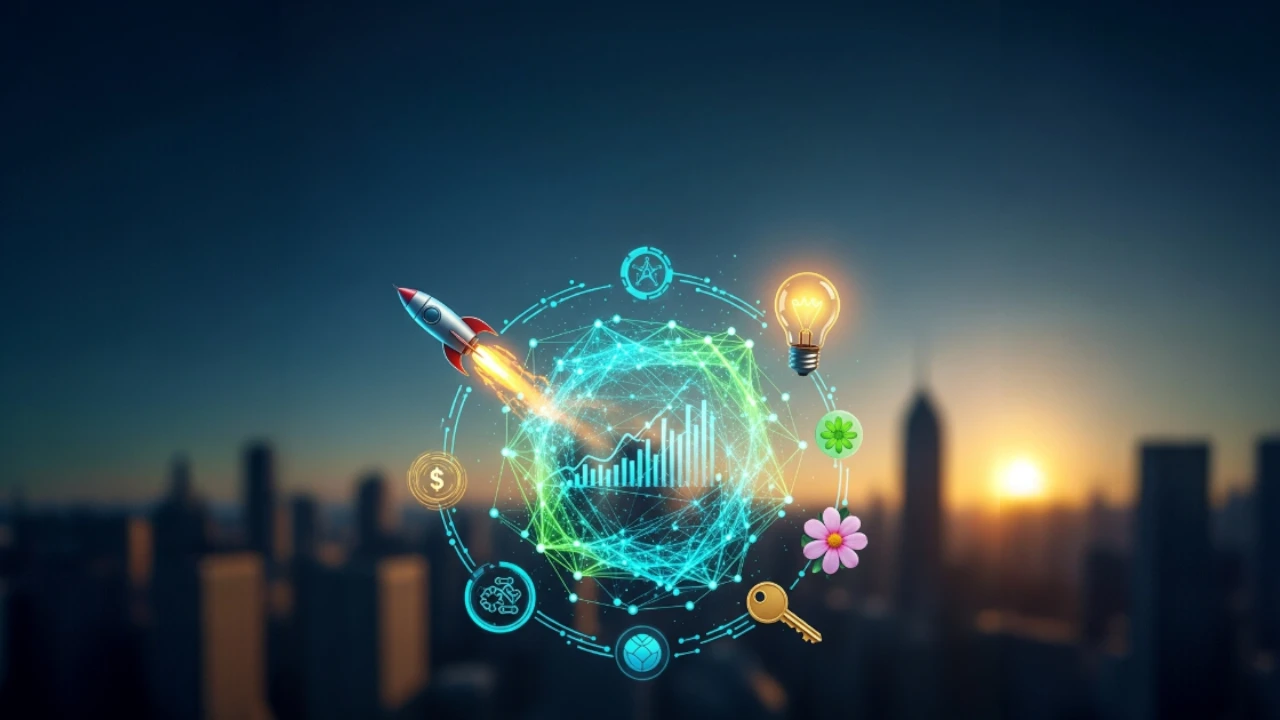In the ever-evolving landscape of digital marketing, Artificial Intelligence (AI) has emerged as a game-changer. By leveraging AI, businesses can gain deeper insights, automate processes, and deliver personalized experiences to their customers. This article delves into the innovative approaches of AI in digital marketing and how they can lead to better results.
Table of Contents
ToggleUnderstanding AI in Digital Marketing
What is AI in Digital Marketing?
AI in digital marketing refers to the use of artificial intelligence technologies to automate and optimize marketing tasks. These technologies include machine learning, natural language processing, and data analytics. AI can analyze vast amounts of data to identify patterns, predict outcomes, and make decisions, thereby enhancing the efficiency and effectiveness of marketing strategies.
The Evolution of AI in Marketing
The integration of AI in marketing has evolved significantly over the years. Initially, AI was used for basic tasks such as data analysis and customer segmentation. However, with advancements in technology, AI now plays a crucial role in various aspects of digital marketing, including content creation, customer service, and campaign optimization.
Innovative AI Approaches in Digital Marketing
1. AI-Powered Content Creation
Automated Content Generation
AI-powered tools can generate high-quality content based on specific keywords and topics. These tools use natural language processing to create articles, blog posts, and social media updates that are engaging and relevant to the target audience. This not only saves time but also ensures consistency in content quality.
Personalized Content Recommendations
AI algorithms can analyze user behavior and preferences to recommend personalized content. This approach enhances user engagement and increases the likelihood of conversions. For instance, streaming services like Netflix use AI to recommend shows and movies based on viewers’ past behavior.
2. Enhanced Customer Experience with AI
Chatbots and Virtual Assistants
AI-powered chatbots and virtual assistants provide instant customer support, answering queries and resolving issues in real-time. These tools use natural language processing to understand and respond to customer inquiries, improving the overall customer experience.
Predictive Analytics for Customer Insights
AI can analyze customer data to predict future behavior and preferences. This allows businesses to tailor their marketing strategies to meet the needs of their customers. For example, e-commerce platforms use predictive analytics to recommend products that customers are likely to purchase.
3. AI in Advertising and Campaign Optimization
Programmatic Advertising
Programmatic advertising uses AI to automate the buying and selling of ad space. This approach ensures that ads are shown to the right audience at the right time, maximizing the return on investment. AI algorithms analyze user data to determine the most effective ad placements and bidding strategies.
A/B Testing and Optimization
AI can automate A/B testing, allowing marketers to test different versions of ads, landing pages, and emails to determine which performs best. This continuous optimization leads to more effective campaigns and higher conversion rates.
4. AI-Driven Social Media Marketing
Social Media Monitoring and Sentiment Analysis
AI tools can monitor social media platforms to track brand mentions, analyze sentiment, and identify trends. This information helps businesses understand how their brand is perceived and allows them to respond to customer feedback promptly.
Automated Social Media Posting
AI can schedule and post content on social media platforms at optimal times. This ensures that posts reach the maximum number of users and increases engagement. Additionally, AI can analyze the performance of social media campaigns and provide insights for improvement.
5. AI for SEO and Content Optimization
Keyword Research and Analysis
AI-powered tools can identify the most relevant keywords for a business’s target audience. These tools analyze search trends and competition to suggest keywords that can improve search engine rankings. This ensures that content is optimized for maximum visibility.
Content Optimization
AI can analyze existing content to identify areas for improvement. This includes optimizing meta tags, headings, and images to ensure that content is search engine friendly. AI can also suggest topics and keywords to include in future content to improve SEO performance.
The Future of AI in Digital Marketing
AI and Voice Search
With the rise of voice-activated devices, voice search is becoming increasingly popular. AI can optimize content for voice search by understanding natural language queries and providing relevant answers. This ensures that businesses remain visible in voice search results.
AI and Augmented Reality (AR)
AI and AR are transforming the way customers interact with brands. AR allows customers to visualize products in their environment before making a purchase, while AI provides personalized recommendations based on user preferences. This combination enhances the shopping experience and increases customer satisfaction.
AI and Data Privacy
As AI continues to evolve, data privacy remains a critical concern. Businesses must ensure that they comply with data protection regulations and use AI responsibly. This includes being transparent about data collection practices and implementing robust security measures to protect customer data.
Conclusion
AI is revolutionizing digital marketing by providing innovative approaches that lead to better results. From content creation and customer experience to advertising and SEO, AI offers numerous benefits that can enhance the efficiency and effectiveness of marketing strategies. As AI technology continues to advance, businesses must stay ahead of the curve by adopting AI-driven solutions to remain competitive in the digital landscape.
FAQs
1. How does AI improve customer segmentation?
AI analyzes vast amounts of data to identify patterns and segment customers based on their behavior, preferences, and demographics. This allows businesses to target specific customer groups with personalized marketing messages.
2. Can AI replace human marketers?
While AI can automate many marketing tasks, it cannot replace human creativity and strategic thinking. AI should be used as a tool to enhance the capabilities of human marketers, not replace them.
3. What are the benefits of AI in email marketing?
AI can personalize email content, optimize send times, and analyze campaign performance. This leads to higher open rates, click-through rates, and conversions.
4. How does AI help in lead generation?
AI can identify potential leads by analyzing user behavior and engagement. It can also score leads based on their likelihood to convert, allowing businesses to prioritize high-quality leads.
5. What is the role of AI in influencer marketing?
AI can identify the most relevant influencers for a brand by analyzing their audience, engagement, and content. This ensures that influencer partnerships are effective and reach the target audience.
6. How does AI enhance website personalization?
AI can analyze user behavior to deliver personalized website experiences. This includes recommending products, displaying relevant content, and customizing the user interface based on individual preferences.
7. What are the challenges of implementing AI in digital marketing?
Challenges include data privacy concerns, the need for high-quality data, and the complexity of integrating AI with existing systems. Businesses must also ensure that they have the necessary skills and resources to implement AI effectively.
8. How does AI improve customer retention?
AI can analyze customer data to identify at-risk customers and predict churn. Businesses can then take proactive measures to retain these customers, such as offering personalized incentives and improving customer service.
9. What is the impact of AI on marketing analytics?
AI enhances marketing analytics by providing deeper insights and more accurate predictions. This allows businesses to make data-driven decisions and optimize their marketing strategies for better results.
10. How can small businesses benefit from AI in digital marketing?
Small businesses can use AI to automate tasks, gain insights, and deliver personalized experiences. This allows them to compete with larger companies and improve their marketing effectiveness without significant investment.
Meta Description
Discover how AI in digital marketing offers innovative approaches for better results. Learn about AI-powered content creation, customer experience, advertising, and more.

